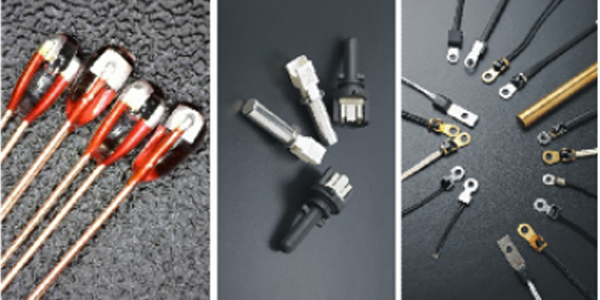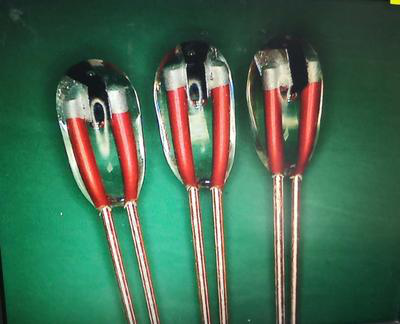Did you know glass NTC thermistors enable high-accuracy temperature measurement in harsh environments? These specialized sensors leverage the negative temperature coefficient (NTC) of semiconductor materials, encapsulated in a protective glass coating.
The result is a compact, rugged thermistor that delivers reliable performance across a wide temperature range. In this article, we'll explore the unique advantages of glass NTC thermistors and how they serve critical applications, from HVAC systems to medical devices.
What are Glass NTC Thermistors?
NTC thermistors are resistors whose resistance decreases nonlinearly with increasing temperature. Glass NTC thermistors take this core technology and house it in a glass capsule. The glass encapsulation provides enhanced protection against moisture, chemicals, and physical stress compared to bare thermistor beads or those with epoxy coatings. This construction makes glass NTC thermistors exceptionally stable and durable.
Advantages of Glass NTC Thermistors
Glass NTC thermistors offer several key benefits for demanding temperature sensing applications:
High precision and accuracy: NTC thermistors can achieve accuracies as tight as ±0.05°C, making them suitable for critical monitoring and control.
Wide operating temperature range: Glass-encapsulated thermistors can operate from -50°C to 300°C, covering most industrial and commercial needs.
Moisture resistance: The glass coating provides an effective barrier against humidity and condensation.
Compact size: Glass bead thermistors as small as 0.1 mm in diameter enable temperature sensing in space-constrained designs.
Fast thermal response time: The small thermal mass allows glass thermistors to react quickly to temperature changes.
Cost-effective: NTC thermistors offer excellent performance at a lower cost than RTDs and thermocouples in many applications.
Applications of Glass NTC Thermistors
The unique capabilities of glass NTC thermistors make them an ideal choice for a wide range of applications:
- HVAC systems rely on thermistors for room temperature monitoring, refrigerant temperature sensing, and more.
- Home appliances like ovens and refrigerators use NTC sensors for temperature regulation.
- Industrial equipment such as 3D printers, plastic injection molding machines, and packaging lines integrate glass thermistors.
- Battery monitoring systems employ NTC thermistors to prevent thermal runaway and optimize charging.
- Medical devices, including patient monitors, diagnostic equipment, and analytical instruments require the high accuracy of glass NTC sensors.
- Automotive sensors for coolant temperature, oil temperature, and cabin climate control often feature glass thermistors.
Choosing the Right Glass NTC Thermistor
To select the optimal glass NTC thermistor for your application, consider key specifications such as:
- Resistance value at 25°C (typical values range from 2,000 to 100,000 ohms)
- Beta value (2,000 to 5,000 K)
- Tolerance (±1% to ±5% at 25°C)
- Operating temperature range
- Dimensions and mounting configuration
For the best results, partner with an experienced glass NTC thermistor manufacturer like Horle. They can guide you to the ideal standard product or develop a custom solution tailored to your exact needs.
Horle: Your Trusted Source for Glass NTC Thermistor Solutions
Horle is a leading manufacturer of high-quality glass NTC thermistors. With over 20 years of experience, we offer a comprehensive range of standard and custom temperature sensors. Our state-of-the-art production facilities and rigorous quality control ensure consistent, reliable performance. And our dedicated engineering team is ready to support you from initial design to full-scale production.
Conclusion
Glass NTC thermistors combine the high sensitivity of NTC technology with the robustness of a glass encapsulation. This makes them an excellent choice for demanding temperature sensing applications across industries. By partnering with a trusted supplier like Horle, you can unlock the full potential of glass NTC thermistors in your designs. Contact us today to discuss your temperature sensing needs and learn how our custom glass NTC thermistor solutions can optimize your application.








